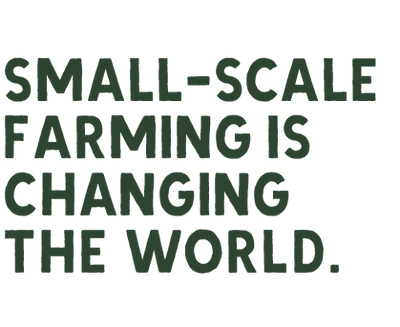Written by Stephanie Mercier Voyer
Chatting with Cheyenne Sundance, the charismatic 23-year-old farmer behind Toronto’s Sundance Harvest, is a much-needed breath of fresh air in a year rife with anger marked by the COVID-19 pandemic and worldwide protests over systemic racism. The Ontario native is quick to smile and undeniably smart, but what sets her apart – aside from her incredible success as a young farmer – is her unwavering commitment to social justice in agriculture.

***
“A lot of young farmers have families that have access to land on which they can start their farms. I didn’t have the privilege of intergenerational wealth.”
Despite the odds, Cheyenne now runs Sundance Harvest, the successful for-profit urban farm she founded in 2019 in the heart of Toronto, where she grows a variety of fresh herbs, microgreens, fruit and vegetables which she sells through Community Supported Agriculture (CSA) and the Dufferin Grove Farmers’ Market.

The radical farmer also leads a free mentorship program and a lawn-sharing program, Liberating Lawns, which is spread across the city. Like most adept entrepreneurs of her generation, Cheyenne uses her growing Instagram platform - 24.1K followers and counting - to share tips about farming and to boost representation of individuals in agriculture that identify as Black, Indigenous, or as a Person of Color (BIPOC). “I get a lot of mail from youths who never thought they could be farmers, but now they’re seeing that they can,” she says.
“Many of the farmers I met had been farmers their whole lives but they didn’t see it as a job. It was just a way of living.”
At 17, Cheyenne was introduced to the principles of peasant farming while working on a farm in Cuba. She saw that small-scale agricultural communities could exercise full control over their food systems, from seed saving and harvesting to distribution and retail.
***
*Adapted for online, read the full article in the first edition of Growers & Co. Magazine

